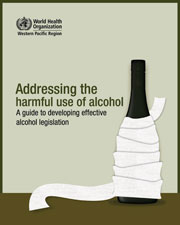
- Prevention is the only viable policy option
“We experience a tsunami of new non-communicable diseases. We have got no option. We must put our efforts into prevention by promoting healthy lifestyles”. With these words the South African Minister of Health, Hon Aaron Motsoaledi opened the a WHO meeting on NCDs in Johannesburg.
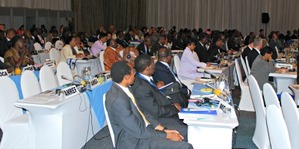
Many of the delegates came from Ministries of Health, but other relevant ministries were alse represented. Around 40-50 representatives from NGOs and NGO networks also attended, some of them national, others covering the whole of Africa.
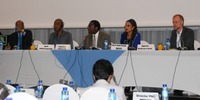
- Health systems are overstretched in many African countries. At the same time we know that there are cost-effective prevention strategies available. Many participants noted with great interest the words of the South African Minister of Health at the opening of the meeting where he said that Africa will be in great trouble if governments follow the international trend to put prevention aside and rather let health services repair the problems that arise, says Øystein Bakke.
Bakke furthermore points to the fact that many delegates in their interventions saw evidence-based alcohol policy as the most effective strategy to combat alcohol-related NCDs. Reference was made on many occasions to the three “best buys” listed in the existing draft NCD Global Action Plan; namely excise tax increases on alcoholic beverages; comprehensive restrictions and bans on alcohol advertising and promotion; restrictions on the availability of retailed alcohol.
The alcohol industry, both their aggressive marketing and their undue interference in alcohol policy development, was criticized by many delegates, both from civil society and from governments. Many were of the opinion that vested interests should be kept at arms’ length of policy development, the same way as the tobacco industry is treated.
The conference was held at a critical and interesting time in South Africa with regard to their national alcohol policy discussions. In his very inspired and powerful speech at the opening of the conference, the South African Minister of Health, Hon. Aaron Motsoaledi presented an ambitious alcohol policy from ANC and the government’s side. This included a ban on alcohol advertising and promotion.
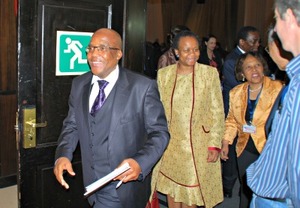
Parts of the conference were spent in plenary sessions with a mix of presentations and open discussions between presenters, expert panels and participants. Every day there were concurrent sessions covering the various risk factors; Tobacco, Alcohol and Unhealthy diet/lack of physical exercise. Participants were free to pick the session most relevant for their work and their competence.
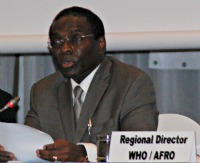
Picture to the right: WHO's Regional Director for Africa, Dr. Luis Gomes Sambo, making his closing remarks at the Stakeholder's Dialogue Conference in Johannesburg, 18 - 20 March 2013.
![]()
![]()
Developed with CustomPublish CMS by Nettinfo AS

